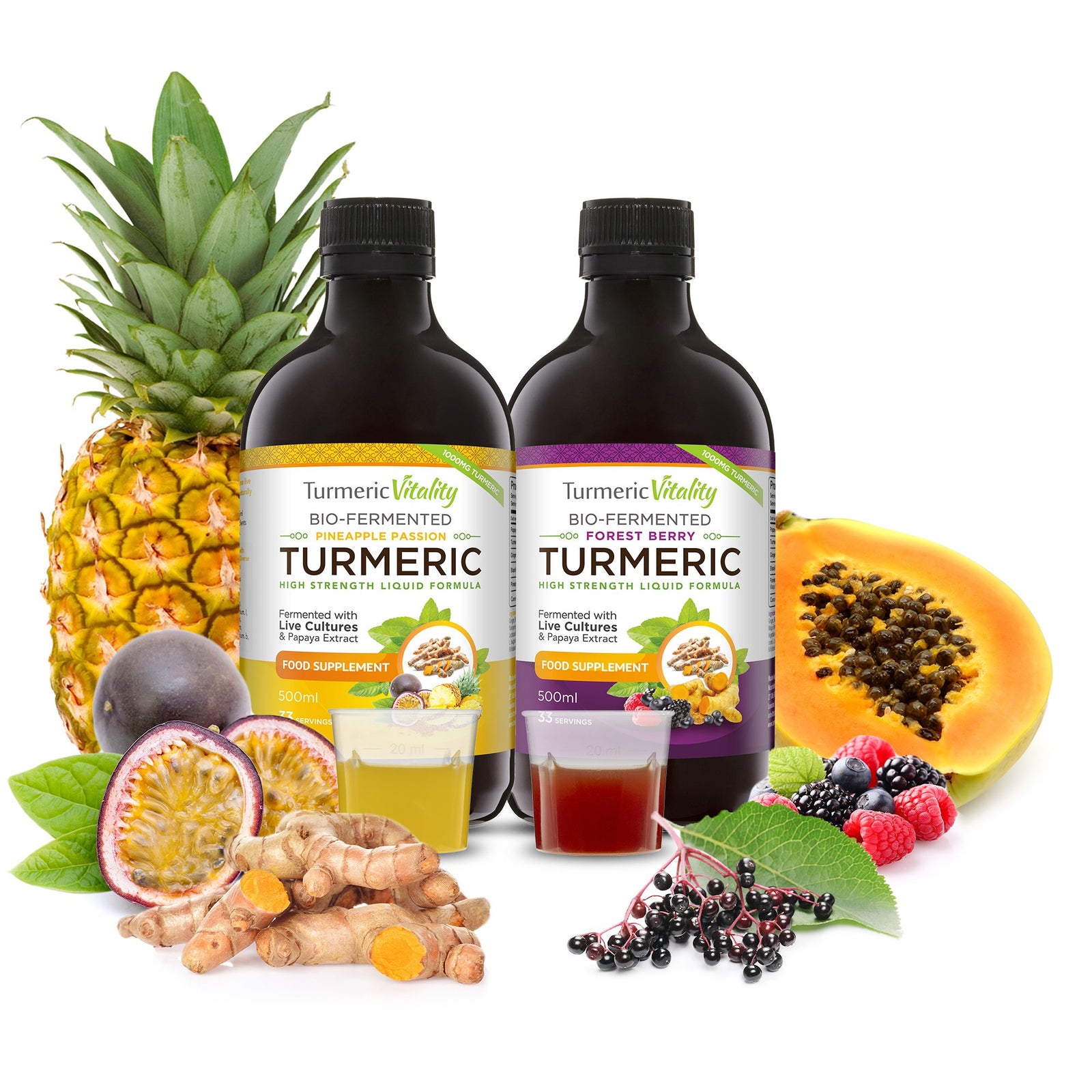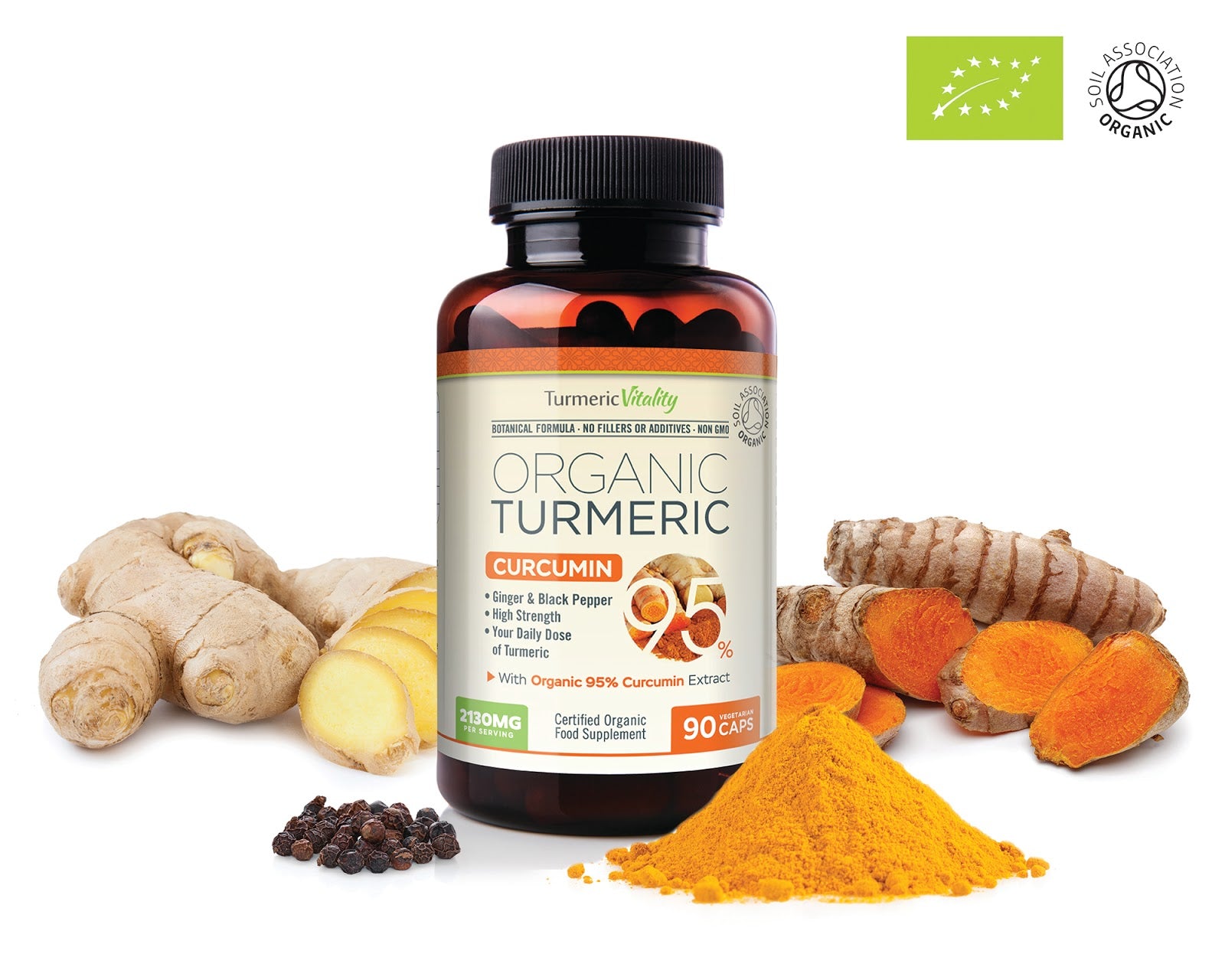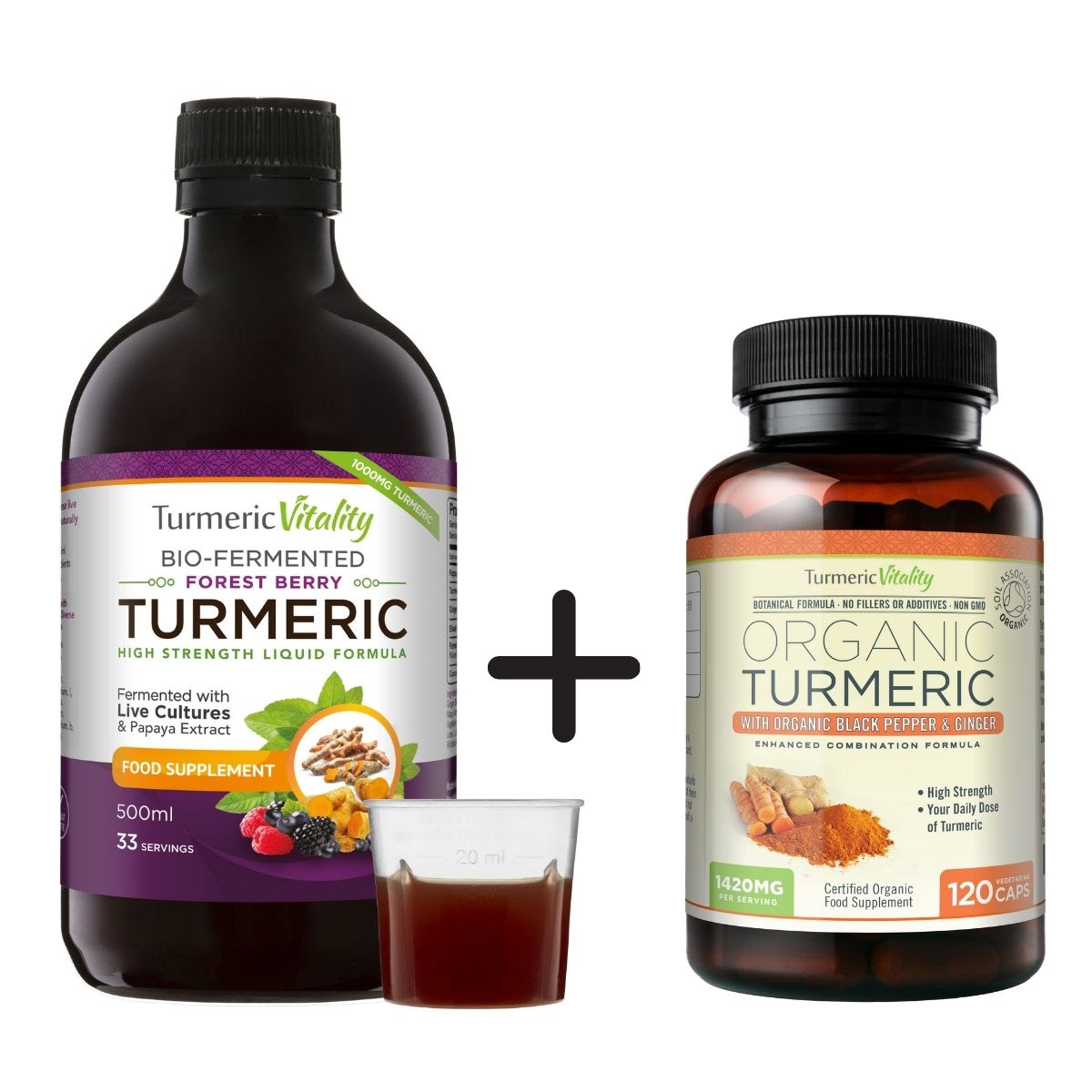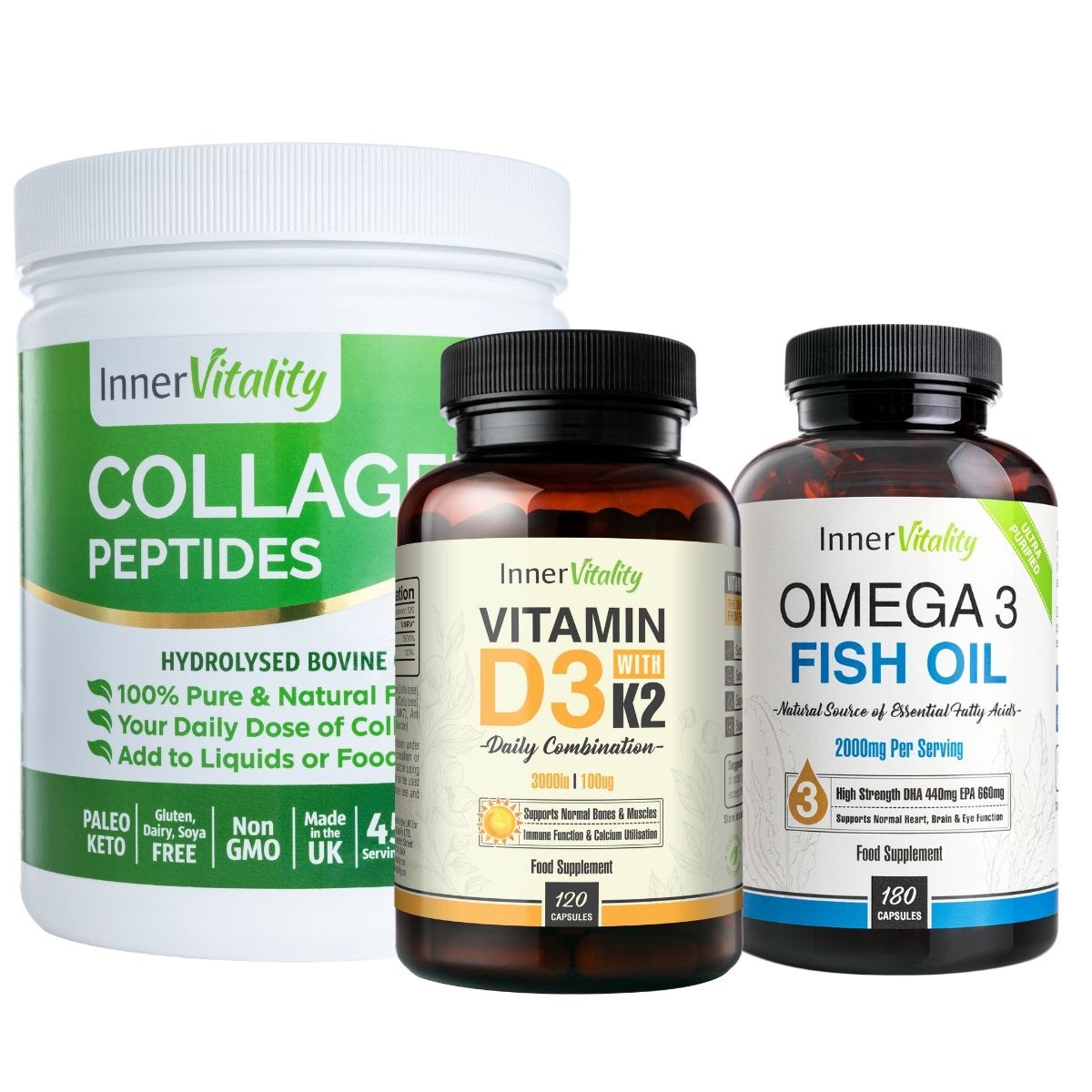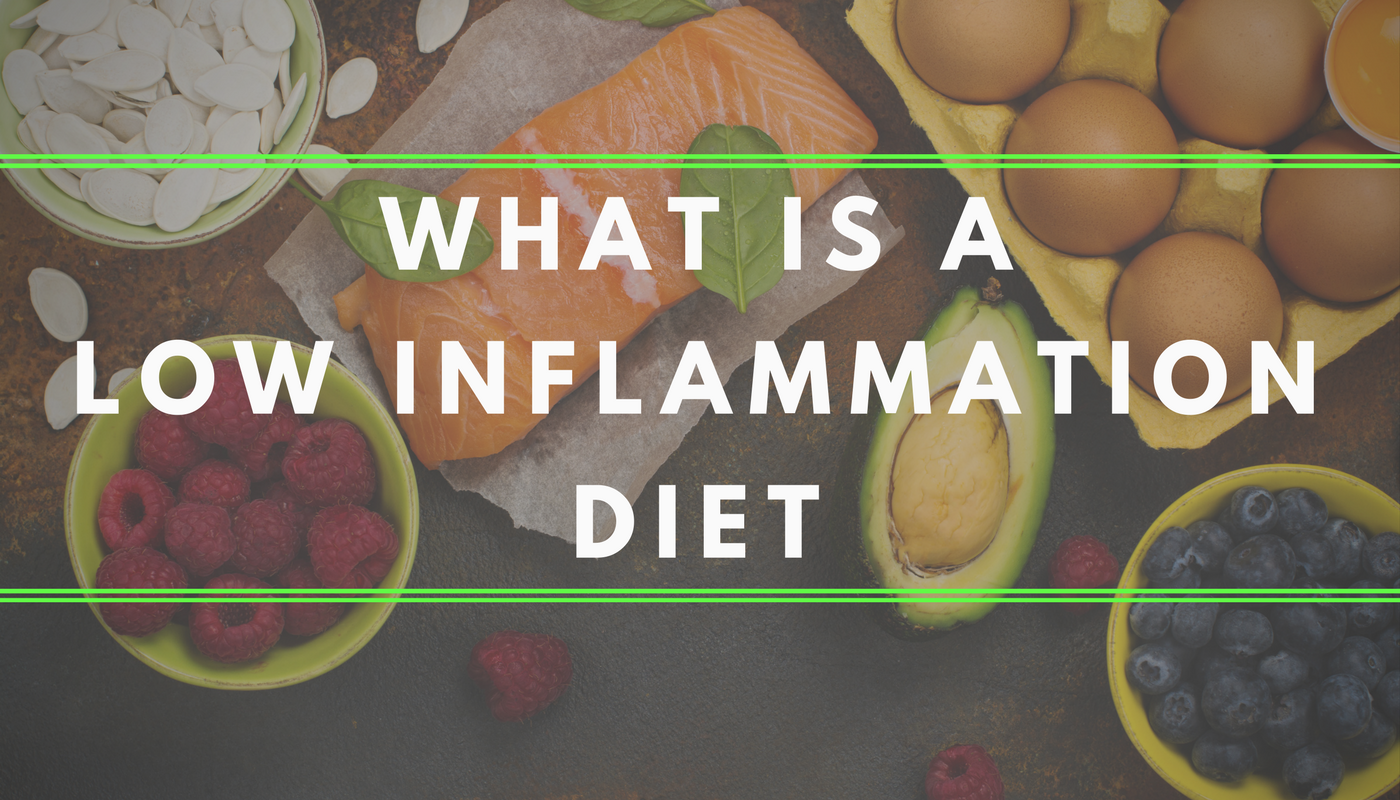Is The Anti-Inflammatory Diet For You? What You Need To Know
The anti-inflammatory diet is talked about by health experts across the world. But does it live up to the hype? Is it the right diet for you? Today, we're going to look at the impact it can have on your health and vitality.
What Is Inflammation?
Inflammation is a natural response by the immune system. When it occurs, the body increases blood flow to the area, as well as encouraging fluid and white blood cells into the surrounding tissues. The aim is to protect and heal tissue.
However, inflammation is only supposed to be a temporary state. As the tissue heals, the inflammation should reduce and eventually disappear. When it doesn't, it is known as chronic inflammation.
Chronic inflammation is damaging, as it's leaving the body on high alert. The compounds that are produced in the inflammatory process can eventually do damage to the tissue.
One important thing to remember is that inflammation is not always a bad thing. Our bodies use inflammation as a tool for repair. In small doses, inflammation can help us to heal from short-term illness and injury.
But when inflammation continues on for too long, it can damage and disrupt the natural processes it is supposed to help.
An anti-inflammatory diet can help to reverse this damage, and get you back to peak health.
Inflammation and Disease
In order to understand why inflammation can be bad for your body, you need to know the relationship between inflammation and oxidative stress.
Oxidative stress is what occurs when toxins in the body damage tissues. The body responds by inflaming the local area. But then if the inflammation continues, it can produce some of the toxins that can cause oxidative stress. It becomes a vicious cycle of damaging and inflaming tissues. The end result is chronic disease and pain.
There are hundreds of health conditions that are linked to inflammation. Some of the most common include:
- Heart disease
- Stroke
- Type 2 diabetes
- Metabolic syndrome
- Obesity
- Depression and other mental conditions
- Cancer
- Neurological conditions like dementia
- Chronic pain
- Fibromyalgia and CFS
- Autoimmune diseases
It's easy to see why health experts are encouraging more people to follow an anti-inflammatory diet. It's believed that the diet could help to prevent and even manage many of these conditions.
The Inflammatory Foods We Eat (And What To Try Instead)
An anti-inflammatory diet has two aspects to it: adding anti-inflammatory foods, and removing foods that can be inflammatory. This balance is key to getting the most benefit from your diet.
So what foods do you need to reconsider? Here, we look at common inflammatory foods, and what to switch them for.
Gluten containing grains
Many health experts may debate over gluten and wheat products. But research shows that it could be a problem for the average person, not just those with intolerances.
The problem with gluten containing grains is that they can affect the gut wall permeability – what can pass through the gut wall. Usually, our digestive tract is very strict with what it lets through. But grains make the junctions looser, allowing more things to pass through.
This means that particles of food, viruses and more can get into your blood stream easily. These unfamiliar particles set off your immune system. And as we know, this means inflammation will occur as part of the immune response.
Switch for: Gluten-free grains and pseudo-grains
The good news is, you can still enjoy some less inflammatory grain options. Rice is generally well-tolerated, so you can try using rice pasta and flour in place of your wheat products.
You can also try out some pseudo-grains. Pseudo-grains are actually seeds, but taste grainy. Common options include quinoa and buckwheat.
Dairy products
It might be hard to believe, but that slurp of milk in your morning coffee could be adding to your inflammatory load. There's a few reasons why dairy can cause inflammation.
Firstly, many people react to casein and lactose found in dairy. This reaction stimulates the immune system, which then causes an inflammatory reaction.
There's also dairy's impact on blood sugar levels – it causes a rapid spike. This can cause all sorts of inflammatory processes, and other imbalances in hormones that can cause more inflammation. It's a perfect storm of triggers for inflammation.
Switch for: Nut or seed based 'dairy' products
Don't worry – you don't need to take your coffee black. There are plenty of dairy-free options on the market that you can try.
For milks, the options are endless. You could try rice or oat milk. But almond and coconut milks tend to be the most popular options. You can even try other nut milks, like macadamia milk.
For yoghurt, your best bet is a coconut yoghurt. For a cheesy flavour that's dairy-free, look out for nutritional yeast – it tastes like Parmesan. Coconut cream can be a good replacement for cream in both desserts and mains.
Vegetable oils
Many people started using 'vegetable' oils, including canola and soy oils, because they were supposed to be healthier than animal fats. Unfortunately, they are actually far worse.
The problem with vegetable oils are two-fold. Firstly, they can lead to inflammation through an imbalance of omega-3 and omega-6 fatty acids. They are very high in omega-6s, which are naturally inflammatory. In small amounts, omega-6s are good. But when consumed in large amounts, it can cause problems.
Most vegetable oils are also damaged when they are heated, and can create trans-fats. This is also what happens when vegetable oils are made into margarine. These artificial fats are incredibly inflammatory, and should be avoided at all costs.
Switch for: Olive/coconut/flax oil
You can still use plant-based oils – just look for those that are lower in omega-6s. Olive oil is a great choice for salads and low heat quick cooking. Coconut oil is a cooking oil option that is mostly saturated, so contains almost no omega-6s.
Looking to boost up your anti-inflammatory nutrients? Flaxseed oil contains higher amounts of omega-3 fatty acids to balance out your omega 3:6 ratio. Just remember to store it in the fridge, and only use for cold dishes.
Sugar
It's becoming common knowledge that sugar can cause a lot of health problems. A lot of this comes down to its impact on blood sugars and inflammation.
Sugar also feeds the 'bad' bacteria in our digestive tracts. These bacteria can produce inflammatory compounds that can cause a lot of problems.
This is generally a problem with added sugars, which are found mostly in packaged foods. However, some people may have problems with natural sugars in high concentrations.
Switch for: Natural sweeteners
It's best to skip artificial sweeteners, as they can cause inflammation and other health issues. Your best option is a sugar-free natural sweetener.
Stevia and xylitol are two good options to try out. Make sure that you're using a pure product – some companies mix natural and artificial sweeteners together. It's also important to follow the guidelines on the product, as the sweetness can vary.
If you do want to use a sugar-containing sweetener, look for a natural and low GI option. Raw honey has a GI around 35-40. Or try using whole fruit instead – mashed banana and apple are commonly used as baking alternatives.
Processed foods
We all know that processed foods aren't good for us. One of the major reasons why is that they are highly inflammatory.
The reasons vary, depending on the food you're consuming. But usually, it's a combination of blood sugar spikes, high omega-6 oils, high sugar content and inflammatory additives. All of these can cause a huge load for the body to deal with.
Switch for: Home-made treats
You don't have to be deprived of delicious food, just because you want to reduce your inflammation. All you need is a healthier option. That's where making your own treats comes in.
Desserts, snacks and treats can all be made using the switches we've already discussed. If you use a healthy sweetener, a good quality oil, and replace the grains and dairy, you'll be much better off.
Anti-Inflammatory Superstars
Just like there are foods that can induce inflammation, there are foods that stop inflammation in its tracks. We think of these as anti-inflammatory superstars. These are the foods that you want to include daily in an anti-inflammatory diet.
Oily fish
These fishy friends – think salmon, tuna, sardines and other fatty fish – are packed full of omega-3 fatty acids. Omega-3s are one of the best nutrients for reducing inflammation naturally.
It's recommended that you include at least 3-4 serves of oily fish per week for optimal health.
Turmeric
If there's a wellness superstar, it has to be turmeric. Turmeric is so anti-inflammatory that research shows it works as well as some anti-inflammatory drugs. The good thing is, turmeric has far fewer side effects than medications!
Turmeric can be included daily. You can use it in both savoury and sweet dishes, as well as beverages. For the greatest benefit, consider adding in a daily supplement to keep your inflammation low.
Berries
Juicy berries are your best bet for anti-inflammatory effects. All berries are low in sugar, high in fibre, and full of anti-inflammatory antioxidants.
You can easily incorporate a serve or two of berries every day. In winter, frozen berries still have plenty of benefits. Chuck a handful in your smoothies, salads and desserts.
Dark chocolate
Yes, chocolate is a health food – if you choose wisely. Chocolate that contains little sugar, and at least 70% cocoa content, can be incredibly healthy in small doses. The compounds in cocoa have natural antioxidant and anti-inflammatory actions.
As part of a balanced diet, you can eat a serve of dark chocolate each day. Eat slowly, and enjoy!
Fruit and veg
This might seem obvious, but fruits and vegetables are a great base for an anti-inflammatory diet. They are excellent sources of antioxidants and other anti-inflammatory compounds. Variety is key, as the benefits vary between each fruit and vegetable. A good guideline is to eat seasonally, as seasonal produce will contain the most antioxidants and nutrients.
Fruit and vegetables should make up a large portion of your diet. An easy way to calculate is to make ½ of every meal plate fruit and/or vegetables. You can sneak extra vegetables in by adding them to smoothies and sauces.
Green tea
Love your morning caffeine hit? Green tea might be the smarter choice. It is full of antioxidants that protect the body from many problems. As a bonus, it also contains a compound that helps you stay focused throughout the day.
Green tea can be enjoyed 1-2 times per day if you usually consume coffee. Otherwise, feel free to just drink it when you feel like a hot beverage.
A Day Of Anti-Inflammatory Foods
So what could your diet look like? This is just a sample of what you might eat on an average day.
Breakfast
An omelette with spinach, mushroom, tomato and a sprinkle of turmeric
OR
Oats with nut milk and fresh berries
Lunch
Green salad with quinoa, chicken and olive oil
OR
Pumpkin soup made with turmeric, ginger and coconut milk
Dinner
Salmon fillet with steamed greens and rice
OR
Baked sweet potato with stir fried vegetables
Snacks
Homemade nut and seed mix
Fruit
Rice crackers with hummus.
Dark chocolate
Beverages
Green tea
Turmeric latte
Water infused with berries
Green smoothie made with almond milk
So if vitality and well-being are your end goal, look at shifting your diet towards the anti-inflammatory path. You still get to enjoy plenty of delicious food, and your body will thank you for it.

